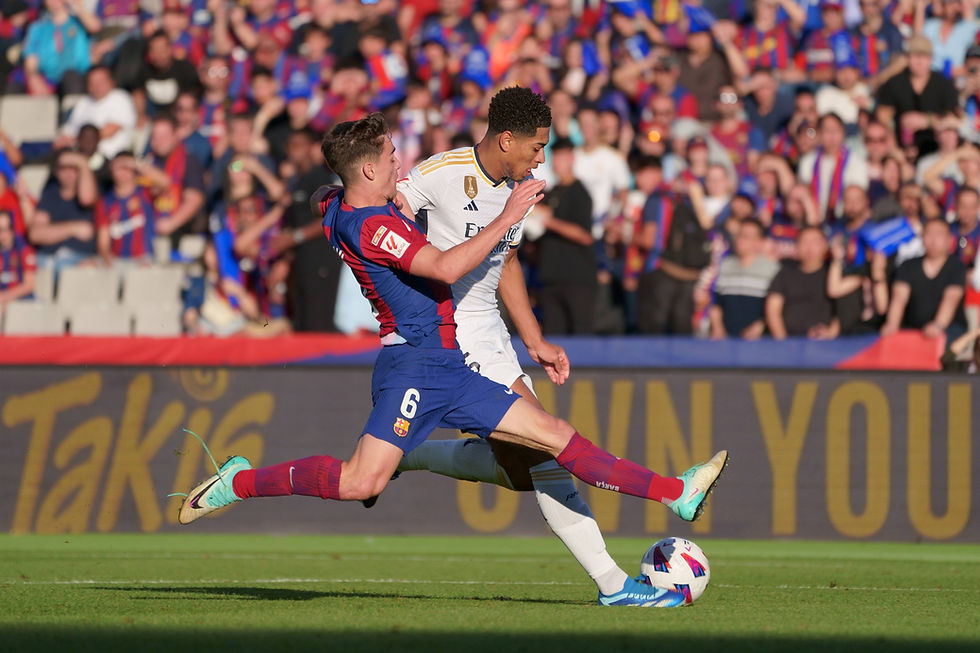FIFA’s Friendly Fire: Ukrainian Club Taking FIFA to Court over June Ruling
- Bryce Goodwyn
- Jul 22, 2022
- 3 min read

Since the outbreak of the Russian invasion in Ukraine, FIFA has attempted to demonstrate solidarity by assisting foreign nationals inadvertently caught in the middle of war. On June 21, FIFA issued a ruling allowing foreign players and coaches at Ukrainian clubs the opportunity to unilaterally suspend their contracts until June 30, 2023, unless a mutual agreement could be found by June 30 of this year. For one of Ukraine’s most prestigious clubs, however, this ruling would hold ominous repercussions, and they have responded accordingly.
Last week, Ukrainian club Shakhtar Donetsk filed papers in the European Court of Arbitration for Sport (CAS) to appeal the most recent update of FIFA’s ruling, seeking €50million in damages from soccer’s governing body. In its filing to the CAS, Shakhtar has also requested FIFA be ordered to pay damages to the club and cover all costs related to future arbitration proceedings. Shakhtar Donetsk is one of Ukraine’s most successful clubs, having won the Ukrainian championship an impressive 13 times and represented Ukraine in the UEFA Champions League on a regular basis. Nevertheless, an inherent trait for which the club is known around the world is their propensity to employ foreign players within the team – especially those from Brazil. Currently, Shakhtar employ 14 foreign players at the club, so any ruling issued by FIFA that allows foreign players to leave Ukraine without their clubs recollecting a transfer fee would hold disastrous consequences for said clubs’ incoming revenue.
Shakhtar’s revenue streams have already been devastated as a result of the Russian invasion. In order to raise funds necessary to maintain the financial stability of the club, Shakhtar were in active discussions to sell their foreign players to other clubs. Shakhtar were not oblivious to the notion that their foreign players would not desire to return to play in the middle of an active war zone. Nevertheless, the club still felt entitled to recover transfer fees for the sales of their players. Unfortunately for Shakhtar, however, FIFA’s June ruling meant that they had 9 days to close all pending deals before the players would be allowed to move to the buying clubs absent of a fee.
For those unaware with the nature of transfer negotiations in global soccer, the process of sealing a transfer can be incredibly tedious. Clubs first must meet at a common valuation for the player in question. Once the valuation has been met, the deal is then subject to the personal terms of the contract, which the buying club must negotiate with the player’s agent or team of representatives. Needless to say, the closing of transfer deals for just a single player is a process that typically spans the length of an entire transfer window, so to mandate that a club be able to negotiate the sales of 14 players in 9 days is an unattainable proposition for any club. Additionally, the players’ agents and the buying clubs also knew that they could wait until June 30 to engage in any transfer discussions with Shakhtar in order to avoid paying the Ukrainian club a transfer fee. Consequently, Shakhtar lost out on millions of Euros worth of incoming revenue, forming the basis of their compensatory claims against FIFA in the CAS.
For Shakhtar’s chief executive, Sergei Palkin, FIFA’s ruling is a gross indication of apathy displayed toward the financial difficulties Ukrainian clubs currently face. With FIFA’s decision, Shakhtar are now unable to collect funds they are rightfully owed for player sales and that they require to continue paying the instalments owed to other clubs for the previous transfers of their current players. Palkin has even stated that current FIFA president Gianni Infantino has failed to respond to multiple letters addressing the matter at hand, leaving one of most recognizable Ukrainian clubs to sit in financial anguish. According to Palkin, the club will have all papers filed to the CAS by August 15 and will take legal consultation to understand all their options in pursuing their claim against FIFA. It will certainly be interesting to observe the steps taken by both FIFA and the CAS in this matter. Since war began in Ukraine, FIFA has been quick to emphasize their support for Ukrainian fans and players, yet Ukraine’s clubs have simultaneously felt the financial sting of neglect. Now, Shakhtar’s legal claims against FIFA indicate that clubs are ready to fight back.
Bryce Goodwyn is an incoming 1L at Regent University School of Law. While at Regent, he will be a member of the Honors Program and will work as a Dean’s Fellow during his 1L year completing research and administrative work. He also formed part of the recently established National Sports Legal and Business Society as the Regent University Chair. He can be found on Twitter @BryceGoodwyn and on LinkedIn as Bryce Goodwyn.








